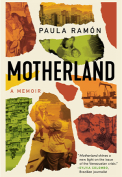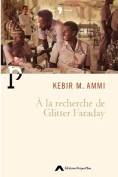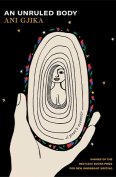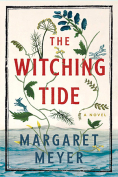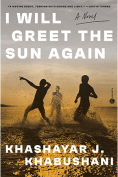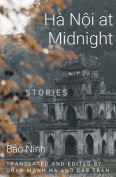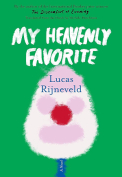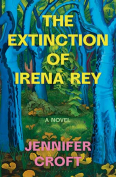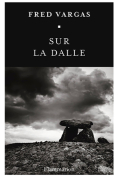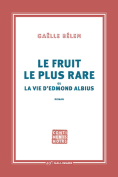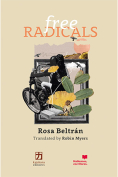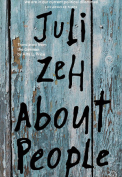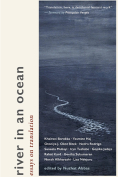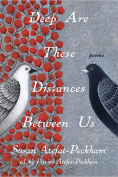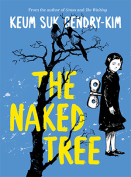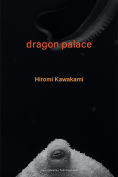The Extinction of Irena Rey by Jennifer Croft
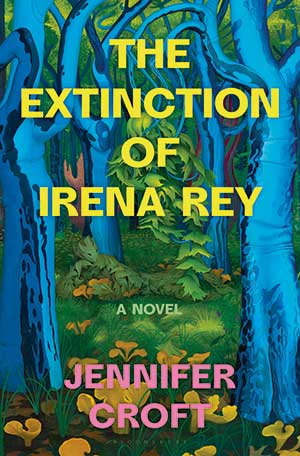 New York. Bloomsbury. 2024. 320 pages.
New York. Bloomsbury. 2024. 320 pages.
My favorite method of procrastination is to wander on Google Maps and bookmark places that interest me—ostensibly with the intent of visiting them some day. I recently discovered that among my nine hundred or so bookmarks, there are just five in Poland. One of these, which I have no memory of bookmarking, is Białowieża Forest, where Jennifer Croft’s debut novel, The Extinction of Irena Rey, is set. Not knowing how I got there or why I took note of it is eerily in keeping with the character of this literary romp in the woods.
Białowieża Forest is not unknown, of course. One of the last, largest remaining primeval forests in Europe, it’s been a news item for years as activists protest government-endorsed logging. Even after the European Union declared the logging illegal, it continues with little political consequence—but dire environmental ones. It’s at the heart of this struggle that we meet a group of translators on their seventh visit to the village of Białowieża, where renowned author Irena Rey lives and works. Irena has many rules for her translators—for instance, they cannot translate other Polish authors; they cannot talk about the weather; they cannot post to social media until after the translation summit; and they must address one another not by their names but by their target languages. (One of the Instagram accounts created in the book does, in fact, exist. Whether it was made by Croft or a particularly ardent fan is hard to tell. As of writing this review, the account has two followers and follows just over a dozen celebrities—Beyoncé, a handful of Kardashians, and a few apparently famous pop stars unknown to this reviewer.)
The Extinction of Irena Rey is narrated by the Spanish translator Emi and fictitiously translated by Alexis (pseudovillain and “worst person in the narrator’s world”) into English. Combined with Irena Rey, the book is a veritable nesting doll of unreliable narrators. The real author, Jennifer Croft, is herself a translator of Polish, Spanish, and Ukrainian. Readers may be familiar with Croft’s award-winning translations of Olga Tokarczuk’s Flights and The Books of Jacob, but it is Tokarczuk’s Drive Your Plow Over the Bones of the Dead and House of Day, House of Night, translated by Antonia Lloyd-Jones, that echo most through this novel. What these three books have in common (beyond a mushroom obsession) is clear reverence for the stories’ setting—Poland’s borderland forests, lovingly mined for mythology and intrigue—even though Emi notes that, in the beginning, “We were book people. We had yet to truly concern ourselves with earth.”
When the translators arrive at Irena’s home in Białowieża, they expect the usual routine—that Irena will place a spiral-bound manuscript in front of each of them, tell them the title (leaving a pause for them to marvel), and read the first paragraph aloud. Instead, they find her in a peculiar state:
She was ghost-white . . . her eyes were black holes, and it hurt to look into them directly, like we were being torn apart . . . even her arms weren’t her arms anymore, exactly—more like twigs half inhumed by her too-heavy, sludge-colored dress.
Irena leads the translators into Białowieża Forest, where the horror of her appearance is softened with descriptions of the natural world: bark is “covered by mosses, lichens, slime molds in bubblegum pink and neon yellow we could just make out in the escalating light”; beech trees are later seen “spiking into the regathering clouds.” But when she eventually speaks, her voice is a “discongulate gurgle.” Her behavior is increasingly erratic, and, by the next day, she’s missing.
Emi recounts the subsequent weeks of searching, though what this means for the plot resists definition—sometimes it’s a mystery, sometimes it’s a parody, sometimes it’s a discourse on the ethics of writing and translation. They get to work on Irena’s latest book about a “climate change artist” who “practices extinction,” scouring the pages for signs of her whereabouts. In the meantime, there are graveyard hauntings, real and imagined affairs, flammable fungi, illicit talk about the weather, a duel, and, most importantly, a forest deity called Leshy. (It’s worth mentioning that one of the subject headings in the English Wikipedia entry on Leshy—which reads like the eighth wonder of the internet—is “Meandering and enigmatic vanishing of individuals.”) All the while, the book’s supposed translator, Alexis, battles for narrative control in the footnotes with increasingly fretful retorts: “Although this is completely fictional, since I was there, I have opted for a more authentic version of this line.”
The other six translators—Swedish, Ukrainian, French, Slovak, Serbian, and German—comprise an eccentric but surprisingly lovable ensemble cast. As they search for clues and grapple with the distinction between real and surreal, so too does the reader—the magic of the novel lies in its proximity to a recognizable literary (and political) world. Croft combines big questions with generous, intuitive humor: How do we make art in a climate emergency? Is the concept of a “mother tongue” relevant in our migratory world? And can you really still have respect for an author if she organizes her books by color? It’s a rare book that’s equally gifted at provoking thought and laughter. The Extinction of Irena Rey is certainly strange, but it’s also strangely beautiful—I hung on every word and cannot wait for a second read. Croft has reinvented ecofiction with this seductive, erudite, and terribly funny tale about “book people.”
 Originally from Canada, Hannah Weber is a writer and editor based in Brighton, UK. She has published work in World Literature Today, Words Without Borders, and Asymptote, among others. She also translates from German.
Originally from Canada, Hannah Weber is a writer and editor based in Brighton, UK. She has published work in World Literature Today, Words Without Borders, and Asymptote, among others. She also translates from German.

